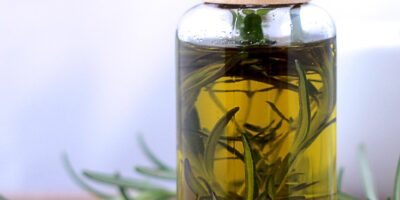The beauty industry in the Arab world is expanding rapidly, with a growing emphasis on organic products that promise both efficacy and environmental responsibility. As the demand for these products increases, understanding the regulatory landscapes that govern their production, distribution, and sale becomes crucial for manufacturers and consumers alike. This article explores the complex regulatory frameworks for organic beauty products in the Arab world, offering insights into the challenges and opportunities presented by these regulations.
The Importance of Regulatory Oversight
Regulatory oversight in the beauty industry is vital for several reasons. It ensures the safety, efficacy, and quality of products entering the market. For organic beauty products, regulation is particularly important because it maintains the integrity of the organic claim, ensuring that products labeled as organic meet strict standards regarding ingredient sourcing, formulation, and manufacturing processes. In the Arab world, where the interest in organic and natural products is on the rise, robust regulatory frameworks are essential to build consumer trust and safeguard public health.
Defining Organic in the Beauty Industry
One of the first challenges in regulating organic beauty products is defining what qualifies as ‘organic.’ Typically, this involves standards for how ingredients are grown, harvested, and processed. In the Arab world, countries may rely on international certifications like USDA Organic, ECOCERT, or local certifications developed to cater to regional farming practices and market needs. These certifications help standardize what organic entails, aiding consumers in making informed decisions and helping manufacturers maintain consistency.
Country-Specific Regulations
Regulatory frameworks for organic beauty products vary significantly across the Arab world, with each country having its own set of rules and standards. For instance:
- United Arab Emirates: The UAE has established itself as a hub for beauty trade in the Middle East. Its regulations are designed to align with international standards, facilitating easier import and export of organic beauty products. The Emirates Authority for Standardization and Metrology (ESMA) provides guidelines and certification processes for organic products.
- Saudi Arabia: As the largest market in the region, Saudi Arabia has stringent regulations enforced by the Saudi Food and Drug Authority (SFDA). The SFDA regulates both local and imported beauty products to ensure they meet specific safety and labeling requirements.
- Egypt: Egypt’s interest in organic products is growing, and the Egyptian Organization for Standardization (EOS) is actively working to develop standards that cater to both local and international markets.
Challenges in Regulatory Compliance
Navigating the regulatory landscapes of the Arab world presents several challenges:
- Lack of Harmonization: With each country having its own set of regulations, there is a significant lack of harmonization across the region. This can create barriers for companies looking to expand their products into different Arab markets.
- Complex Certification Processes: Obtaining organic certification can be a complex and time-consuming process. It requires rigorous documentation and compliance with various standards, which can be daunting for smaller or newer companies.
- Cost Implications: The cost of complying with organic regulations and maintaining certifications can be high. This includes costs related to sourcing ingredients, modifying production processes, and ongoing compliance checks.
Opportunities Amidst Regulations
Despite these challenges, the regulatory landscapes for organic beauty products also present numerous opportunities:
- Market Differentiation: For companies that successfully navigate these regulations, there is a significant opportunity to differentiate their products in the market. Certified organic products often command higher prices and can build strong brand loyalty among health-conscious consumers.
- Consumer Confidence: Robust regulatory frameworks increase consumer confidence in organic products, which can drive market growth. As more consumers become aware of the benefits of organic products, demand is likely to increase, creating more opportunities for businesses.
- Innovation and Development: The need to comply with regulatory standards can drive innovation in product development. Companies are often pushed to explore new ingredients, formulations, and manufacturing processes that comply with organic standards.
Conclusion
The regulatory landscapes for organic beauty products in the Arab world are complex but crucial for ensuring that products meet the high standards expected by consumers. For businesses, understanding and navigating these regulations is key to success in a competitive market. As the region continues to develop its regulatory frameworks, there is significant potential for growth and innovation in the organic beauty sector, promising a future where beauty and wellness go hand in hand with safety and sustainability.














